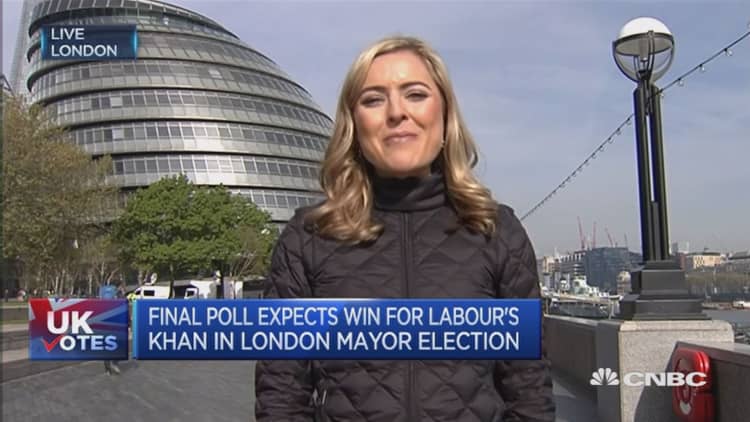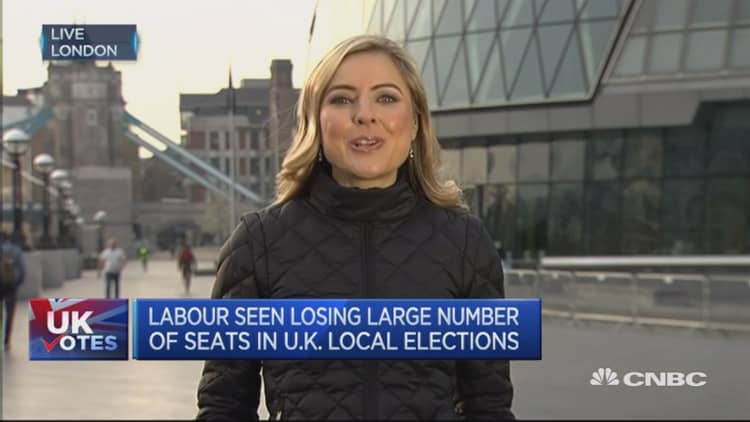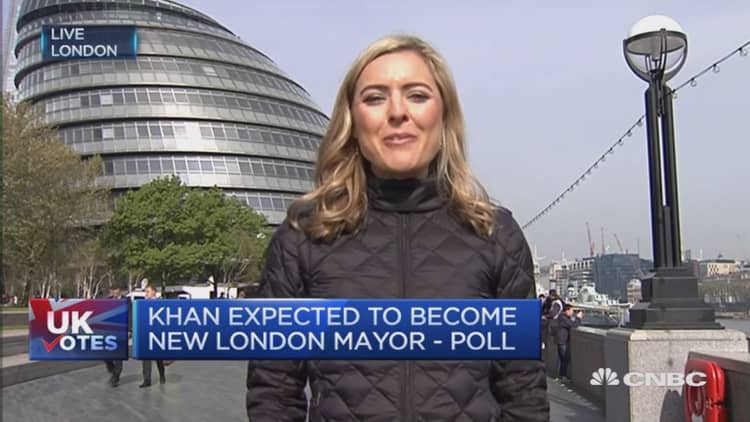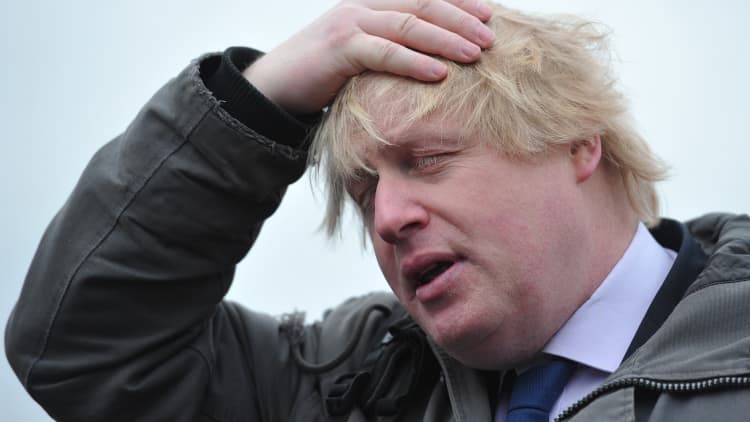


It's unusual for a mayoral election to capture the world's attention, however, this week's battle to become London's effective chief executive has drawn interest from far beyond the City's boundaries. It comes as U.K. politics moves closer into the global spotlight ahead of the vote on its EU membership on 23 June.
A number of parallels can be drawn between the London mayoral elections and Brexit.
Firstly, certain high-profile personalities have taken center stage in both events. Outgoing mayor, the boisterous, peroxide-haired Boris Johnson has stormed into the Brexit debate to head the official Leave Campaign. Conservative candidate Zac Goldsmith has followed his lead, in a move which pits both men squarely against their fellow Conservative Prime Minister, David Cameron.
Given many cannot see the Prime Minister surviving a British withdrawal from the union, some were surprised to see him throw his weight so heftily behind Goldsmith. Cameron's public input into the election included warning Londoners they would "pay the price" if they were to "sleepwalk" into voting for Labour frontrunner Sadiq Khan.
Khan is on the Prime Minister's side on the debate - firmly pro-EU and repeatedly highlighting his concerns over prospects for skills and growth in the City in the case of Brexit.
Aside from personalities, policies also link the two events. Several key areas which fall under the Mayor's remit stand to be largely affected by the EU referendum outcome. Housing and business are two of the most prominent topics.
For the first time ever, housing tops the list of priorities for both candidates. The Royal Institute of Chartered Surveyors (RICS) recently labelled London's housing crisis as 'chronic' and despite house price growth slowing in April, data from Nationwide shows values still heading north. London's population continues to grow, with the current figure of 8.6 million expected by the mayor's office to grow to 10 million by 2030.

While it is unlikely London's population growth will go into reverse whatever the Brexit outcome, what could feasibly change is the composition of the population. RICS believes a Brexit could see a higher exodus of executives following their companies out of London towards a home base on the European continent, hitting the upper end of the housing market hardest. It is also widely believed that uncertainty triggered by a Brexit as the U.K. renegotiates its relationships with the EU and other countries, would cause the slowdown in house price transactions already in evidence to continue and price growth to be more subdued or turn more negative in some areas until the volatility settled.
A Brexit could also exacerbate the skills shortage often cited as a key factor hindering construction of new homes. Many contractors come from within the EU and a British withdrawal could see the entry process for them become more costly and cumbersome, hampering both Mayoral candidates' avowed intent to at least double the number of new houses built.
The skills shortage bridges concerns for housing and business - the latter another key policy focus for London's mayor. In April, 50 high profile business leaders called for urgent and drastic work to be done to improve the housing situation, saying they found it increasingly challenging to recruit the best talent due to the insurmountable costs of London housing.
The Mayor's responsibilities include promoting the economic wealth and development of London, much of which is dominated by its world-leading financial services' industry, colloquially known as "the City". A broader question is therefore how many more skilled workers would leave the capital in the case of Brexit? The fear being that the attraction of London as the preferred entry point to Europe would diminish as more global businesses elect - or are required - to have a base within an EU member state, precipitating companies to abandon the city.
However, two prominent credit ratings agencies have divided views on the matter. While S&P warns the negative effect of a Brexit would be 'significant', particularly for the City, Moody's strikes a more sanguine note, saying in its central scenario, it does not expect a Brexit to 'materially damage' the City's strong position. RICS cites London's attractions of language, a robust legal system, quality office space and educated workers as being reasons the feared business exodus may not materialize.



